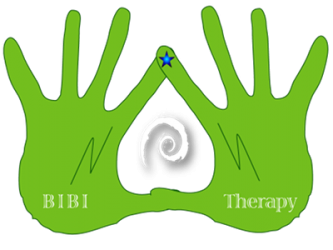Taming the Reptilian Brain during COVID-19 Pandemic
Life as an immune-compromised person under coronavirus quarantine Stage 4 lockdown in Melbourne is stressful. By now we have adapted to the new normal of staying at home, wearing masks, respecting the 1.5 meters distance rule, the curfew and the one hour daily exercise. We are proud of you Melbourne!
I watched the daily coronavirus numbers floating up and down and finally descending to a point that we now have eased a bit the restrictions. The major element that we are facing as a community is that the constant fear and stress has already taken the toll on our fragile world. The stress due to the second lockdown induced anxiety, sadness even irritability and anger not to mention that it drained us of the vital energy to go about our daily lives.
In a previous blog, I wrote about how to use Nutraceuticals to support a healthy lifestyle and in particular as mood boosters when feeling under the weather.
As a holistic practitioner I am also interested to know why we act in an aggressive or offensive way when we face a major crisis such as this world-wide pandemic. Furthermore, I want to know how we can overcome the urge to act in such manner. Well this blog is about briefly answering these two questions.
The brain is extremely sensitive to stress (Cobley et al, 2018). COVID-19 brought in more stress, fear and angst in our lives that some of us are designed to handle. Oxidative stress products are neurotoxic and tend to be deposited under certain conditions in large amounts in a part of the brain called globus pallidus (Hayashi et al, 2001). Interestingly this part of the human brain is metaphorically, referred to as the “reptilian brain”. This concept was introduced in the 1960s Triune Brain Hypothesis developed by the neuroscientist Paul Maclean. Although this theory is not entirely accepted worldwide, as it oversimplifies the human brain, it has some interesting points that can help us understand how external triggers, such as fear or stress can lead to aggressive behaviour or irritable self-serving. It turns out that when we feel insecure, we begin to think negative thoughts mainly because this part of the brain, the “reptilian brain” is activated. When this happens, we tend to assess situations in a black/white, dangerous/harmless fight or fly style assessment.
We can easily see that if neurotoxic oxidative stress products would mainly be deposited in the globus pallidus, aka “reptilian brain” we would become irritable self-serving without even knowing what happens to us. Fear is a sneaky thief that works against our well-being and sanity.
Good news is that this entire situation can be controlled, and some call it emotional fitness. It involves two components:
- We must consider taking a conscious decision to focus on constructive and creative tasks in order to stay away from negative thoughts.
- We must eliminate foods that increase the oxidative stress: that is a diet high in sugar, fat and alcohol.
Theoretically the two elements described above are easy to consider. But how can one implement them? I am sharing my own recipe and admit there may be variations of any of the steps presented.
- Firstly enjoy the moment. By this I mean that we become aware of our own automatic responses when we experience a stressful situation. To do so we engage in a conscious use of breathing cycle. It only takes a few seconds to consciously inhale and exhale so that the brain receives maximum oxygenation levels and move away from negative thinging;
- Secondly we must spend more time in nature. I do so by performing what I call a mindful walking in the neighbourhood: When out for my daily walk, I take time to focus on my breathing as well as pay attention to particular aspects within the neighbourhood: colours, sounds, air movement, gardens or the sky. This enables the brain to search for meaningful activities while doing a routine walk. In my IG account I shared some outcomes of this mindful walking.
- Finally up-skill the body to eat consciously and mindfully
- Give the brain the freedom to experience new healthy foods;
- Re-train the taste buds to accept the incredible diversity of taste essences and flavours; start slowly with one new food per week;
- Practice mindful eating: enjoy new taste, textures and flavours. It involves developing a slowly eating habit. This enables a swift communication between the gut and the brain via digestive enzymes. Mastering the art of eating slowly is however the subject of another blog.
It is my hope that you enjoy reading this short blog. Thank you and until next time, stay safe.
This blog is for information only. Do your diligent homework, talk to your doctor if you need specialist advice and enjoy a life free of oxidative stress.
Resources
Cobley, J.N., Fiorello,M.L. Bailey, D.M. (2018). 13 Reasons why the Brain is Susceptible to Oxidative Stress, Redox Biology, 15 (490-503). https://doi.org/10.1016/j.redox.2018.01.008.
Hayashi, M., Itoh, M., Araki, S., Kumada, S., Shioda, K., Tamagawa, K., Mizutani, T., Morimatsu, Y., Minagawa, M., & Oda, M. (2001). Oxidative stress and disturbed glutamate transport in hereditary nucleotide repair disorders. Journal of neuropathology and experimental neurology, 60(4), 350–356. https://doi.org/10.1093/jnen/60.4.350

